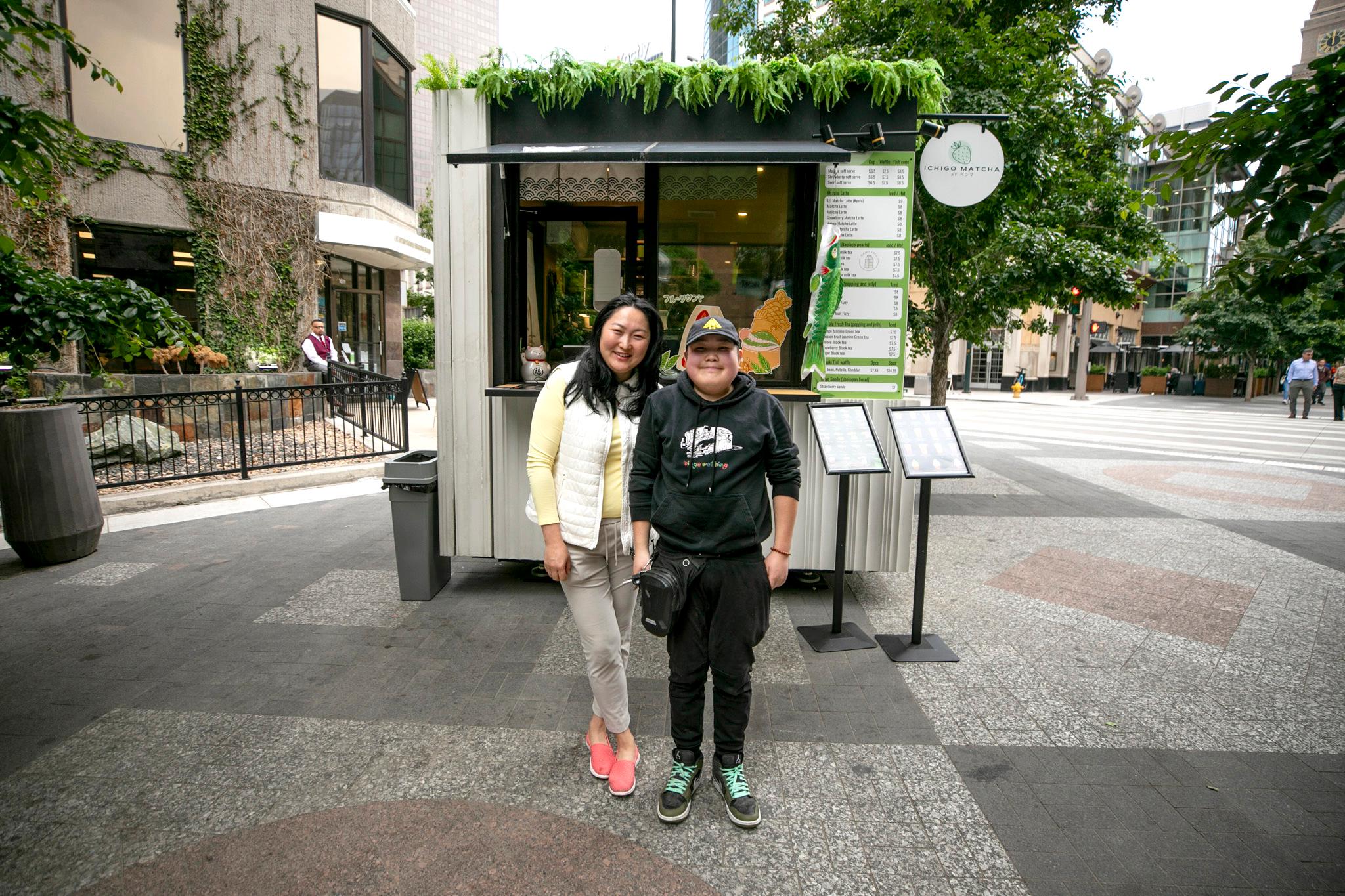Emma Lkhagvhjav came to the U.S. to give her son a future.
Teddy had been diagnosed with brain cancer when they were still living in their native Mongolia. In 2013, with $800 in her pocket, Lkhagvhjav moved her family to Colorado to find him help. The boy emerged healthy from a five-year treatment plan.
Once the emergency was behind them, their dreams for the future shifted to something more tangible.
“I want to open an ice cream shop,” she told us. “It's actually my son's dream.”
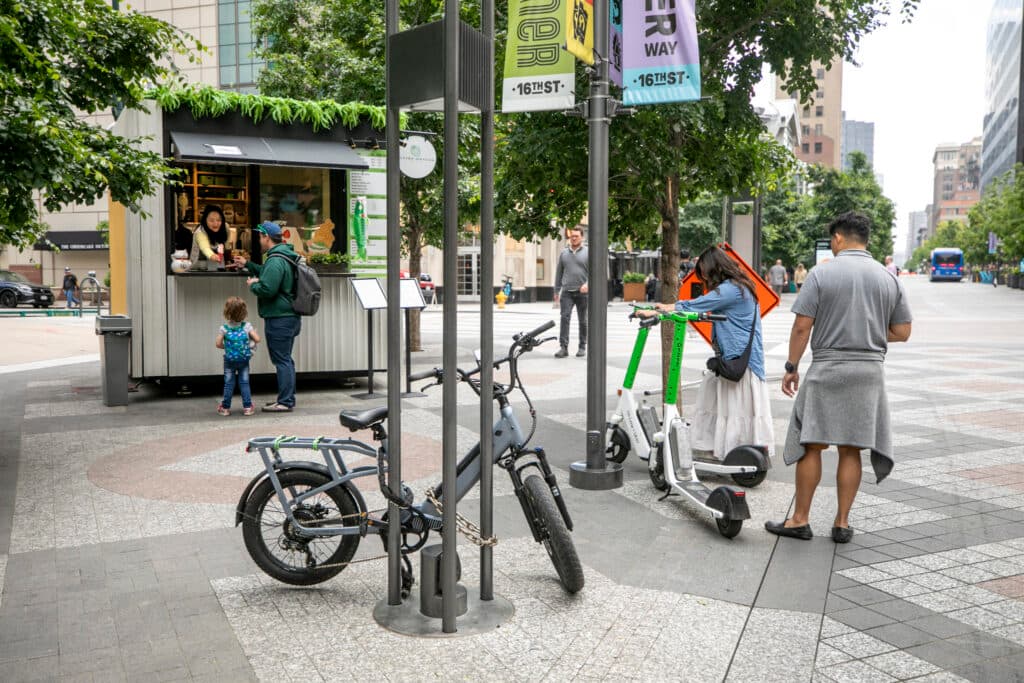
Today, that dream is playing out on 16th Street.
Last fall, after years of saving and waiting, Lkhagvhjav opened Ichigo Matcha soft serve shop in a kiosk at 16th and Larimer Streets, serving coffee and taiyaki. The Japanese dessert features fish-shaped cones brimming with ice cream.
She is an early investor in the reinvented 16th Street, which has seen a wave of business closures amid the pandemic and years of construction. The movable shop is tiny, but the rent is cheap. For her, the kiosk is a stepping stone to something more permanent. For city officials, new businesses like this are crucial for a corridor in need of rejuvenation.
16th Street’s kiosks are in a moment of rebirth.
Sarah Wiebenson is head of economic development for the Downtown Denver Partnership (DDP), the pseudo-governmental organization that guides growth in the city’s urban core.
The 70-year-old organization has managed kiosks along 16th Street for decades, she said. Before the COVID-19 pandemic effectively shut down the corridor in 2020, DDP had 20 locally owned businesses operating out of the temporary structures.
Wiebenson said some businesses relocated when an overdue renovation on 16th Street broke ground in 2022. Others closed for good. Today, there are nine kiosk businesses operating and two more preparing to open.
“We really want 16th Street to come back stronger than ever,” she said.
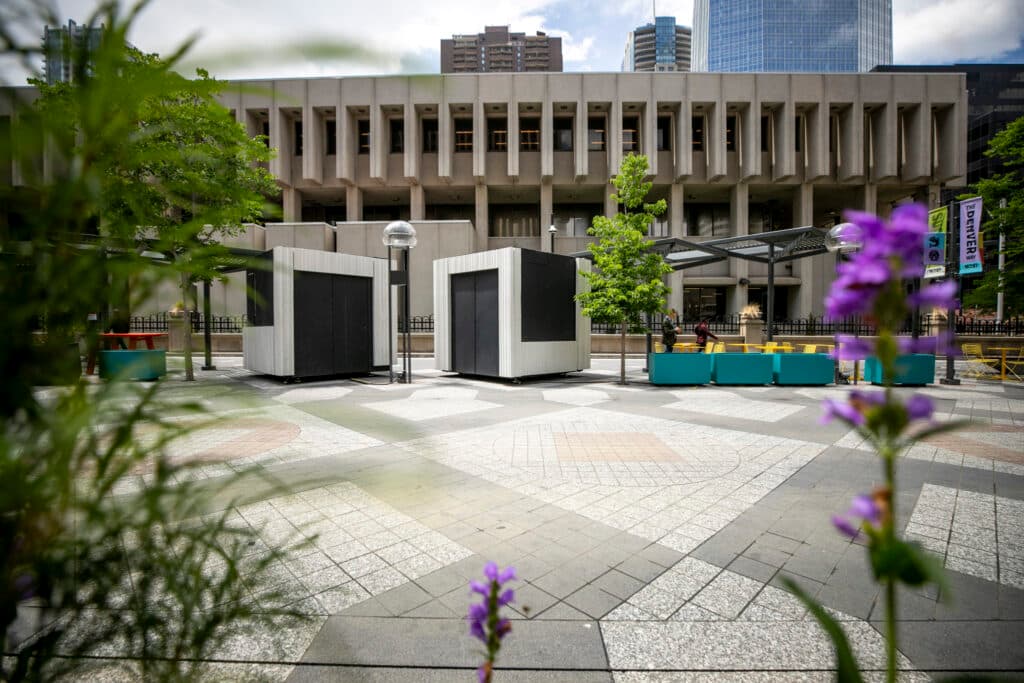
These tiny business huts serve two purposes, Wiebenson said. First, they provide local entrepreneurs with low-barrier opportunities to launch new businesses. DDP offers grants to help business owners purchase or lease spaces, as little as $3,000 for a cart and as much as $12,500 for a food-grade kiosk.
Second, it’s a way for the partnership to attract more offerings for visitors. In a moment when many brick-and-mortar spaces are vacant, these stalls are a quick way to inject new commerce into the corridor. Wiebenson said it’s a shorter-term solution as DDP tries to woo national brands into bigger leases downtown.
DDP used federal grant money to bring in a handful of shiny new structures to lease to people like Lkhagvhjav. The new spots were designed and built by students in the Colorado Building Workshop at the University of Colorado Denver — cubes made of slate walls and garnished with black metal.
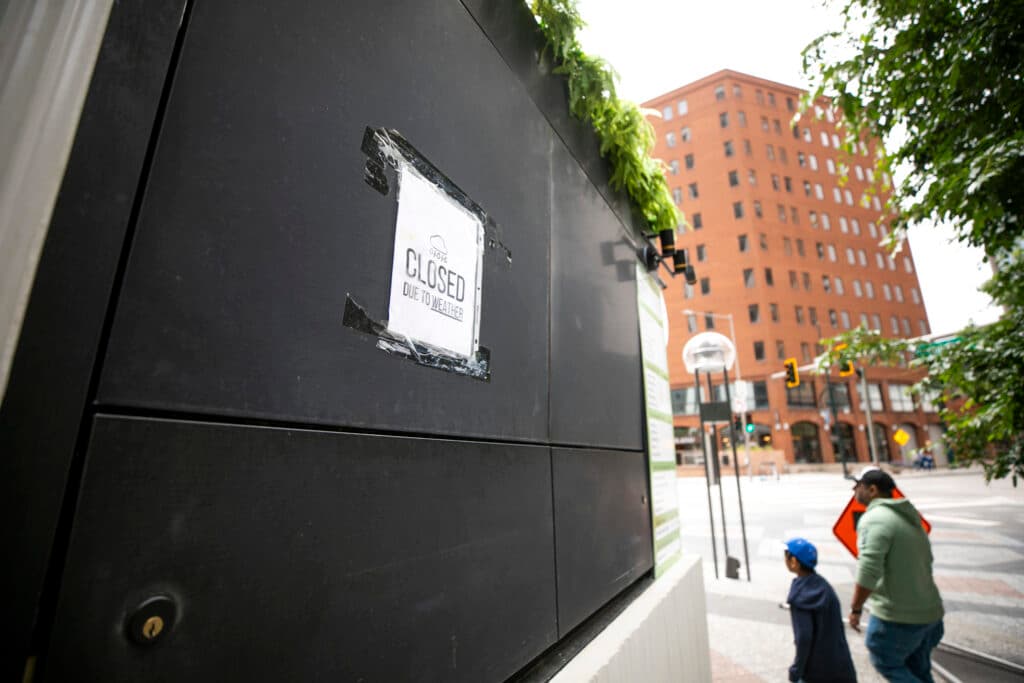
Wiebenson said there are still some leases and grants available for businesses.
Increasingly, officials want 16th Street’s kiosks and storefronts to serve people who live nearby. As office vacancies have risen downtown, there’s been growing interest in converting some commercial spaces into housing.
“We're really looking at those types of amenities that will serve a growing residential population — that includes smaller format grocery stores, daycares, even dog groomers, anything that will make it easier for people to live and work downtown,” she said.
A dream for $10,000 a year.
Lkhagvhjav said she was grateful it was so easy to move into her stall, but she had to wait years for it to finally happen.
She first opened a successful food truck business downtown and made connections with the partnership through her regular customers. Those contacts encouraged her to apply for a 16th Street stall. But the pandemic pulled the rug out from under her shortly after she applied.
She thought the path was open again in 2022, but then construction on 16th Street began.
“That was another two years,” she said.
Lkhagvhjav kept her sights set on 16th. She didn’t have the money to open Ichigo Matcha anywhere else in the meantime. Her business plan relied on DDP’s subsidized spaces.
Today, she pays about $10,000 a year for the space.
“I didn't pay any deposit,” she said. “The rent is affordable. It includes electricity and everything.”
Business in the stall has been good since she opened last September — so well that she is planning to open a second location next week. The new kiosk, which will be further east along the corridor, will specialize in Chinese-style bubble tea.
The spaces aren’t always ideal. Lkhagvhjav had to close shop a few times this spring due to heavy rain, and there’s no telling who will approach customers queued down the block.
But she said it’s worth tolerating some quirks. The kiosk has brought her closer to that dream of an ice cream shop in a permanent location, close enough that she’s begun to look at spaces.
This is an intentional progression, Wiebenson told us.
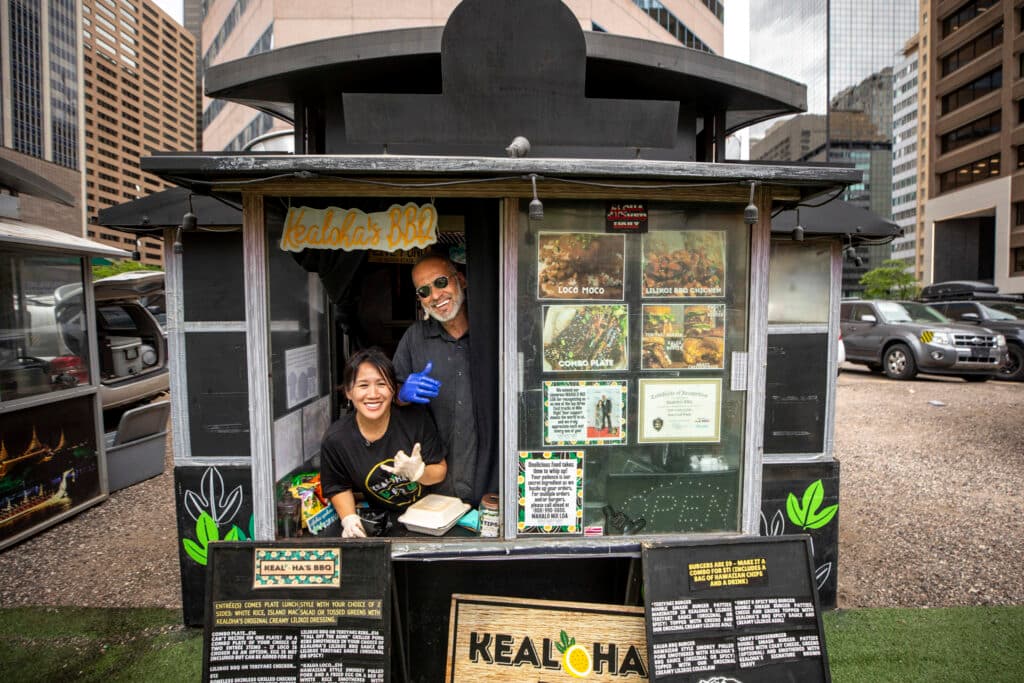
“We see the retail activation program as an innovation lab,” she said. “The goal is definitely to help these businesses reach the point where they could go into a brick and mortar, where they've tested the market.”
And while Lkhagvhjav is happy her kiosk has helped her along a path towards longterm stability, she said she most loves that it’s provided a place to be close to Teddy. The rising high-school junior was busily setting up shop on a recent morning while his mother spoke with us.
“I'm working with my son,” she said, eyes filled with joy. “I told him, ‘This is going to be yours, for your future.’”
Editor's note: This story has been updated to reflect that the new kiosks were designed and built by students in the Colorado Building Workshop at the University of Colorado Denver, not the University of Colorado's environmental design program.

